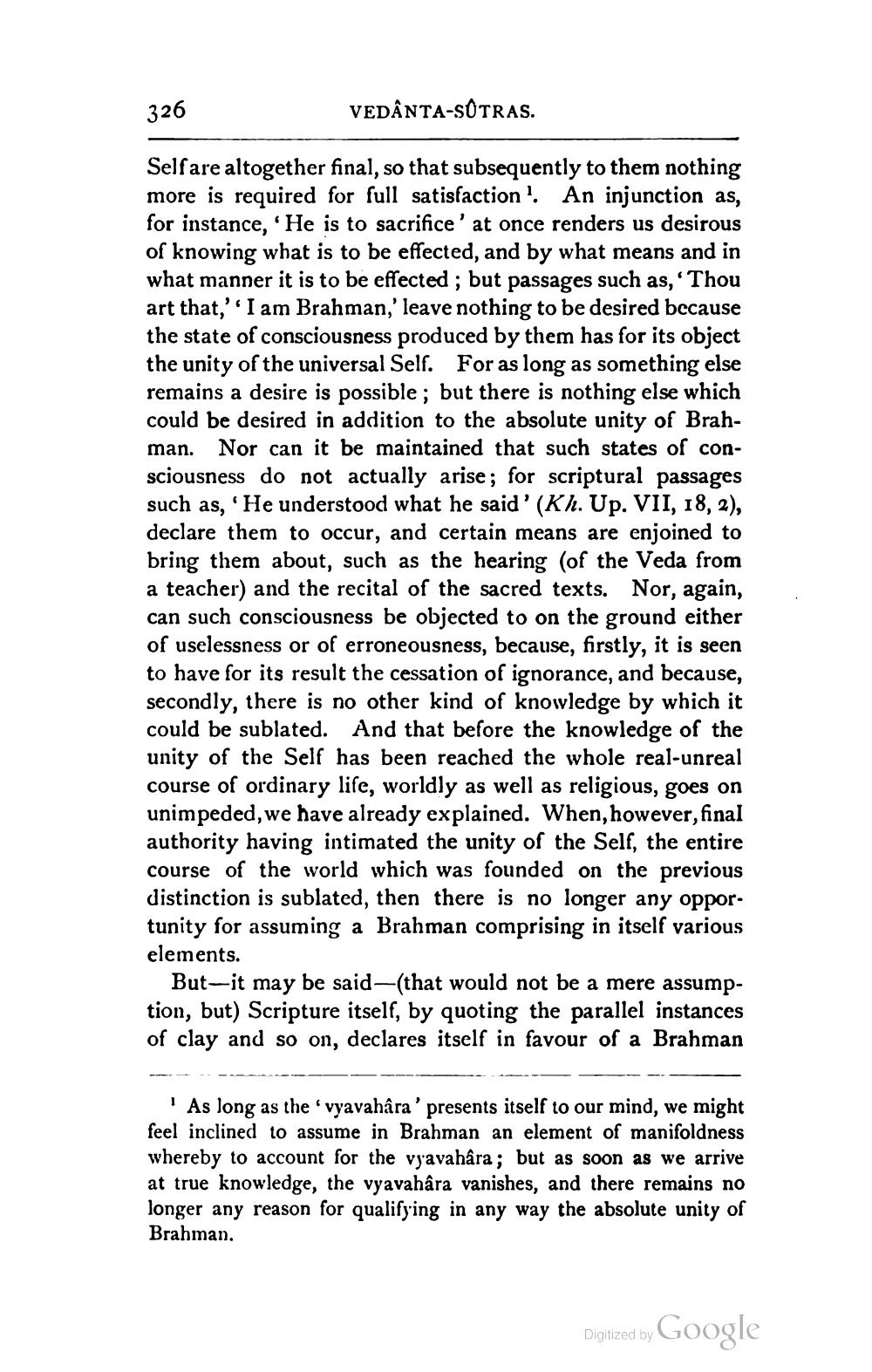________________
326
VEDÂNTA-SOTRAS.
Selfare altogether final, so that subsequently to them nothing more is required for full satisfaction. An injunction as, for instance, 'He is to sacrifice' at once renders us desirous of knowing what is to be effected, and by what means and in what manner it is to be effected; but passages such as, 'Thou art that,' I am Brahman,' leave nothing to be desired because the state of consciousness produced by them has for its object the unity of the universal Self. For as long as something else remains a desire is possible; but there is nothing else which could be desired in addition to the absolute unity of Brahman. Nor can it be maintained that such states of consciousness do not actually arise; for scriptural passages such as, 'He understood what he said' (Kh. Up. VII, 18, 2), declare them to occur, and certain means are enjoined to bring them about, such as the hearing (of the Veda from a teacher) and the recital of the sacred texts. Nor, again, can such consciousness be objected to on the ground either of uselessness or of erroneousness, because, firstly, it is seen to have for its result the cessation of ignorance, and because, secondly, there is no other kind of knowledge by which it could be sublated. And that before the knowledge of the unity of the Self has been reached the whole real-unreal course of ordinary life, worldly as well as religious, goes on unimpeded, we have already explained. When, however, final authority having intimated the unity of the Self, the entire course of the world which was founded on the previous distinction is sublated, then there is no longer any opportunity for assuming a Brahman comprising in itself various elements.
But-it may be said (that would not be a mere assumption, but) Scripture itself, by quoting the parallel instances of clay and so on, declares itself in favour of a Brahman
As long as the vyavahara' presents itself to our mind, we might feel inclined to assume in Brahman an element of manifoldness whereby to account for the vyavahâra; but as soon as we arrive at true knowledge, the vyavahara vanishes, and there remains no longer any reason for qualifying in any way the absolute unity of Brahman,
Digized by Google




